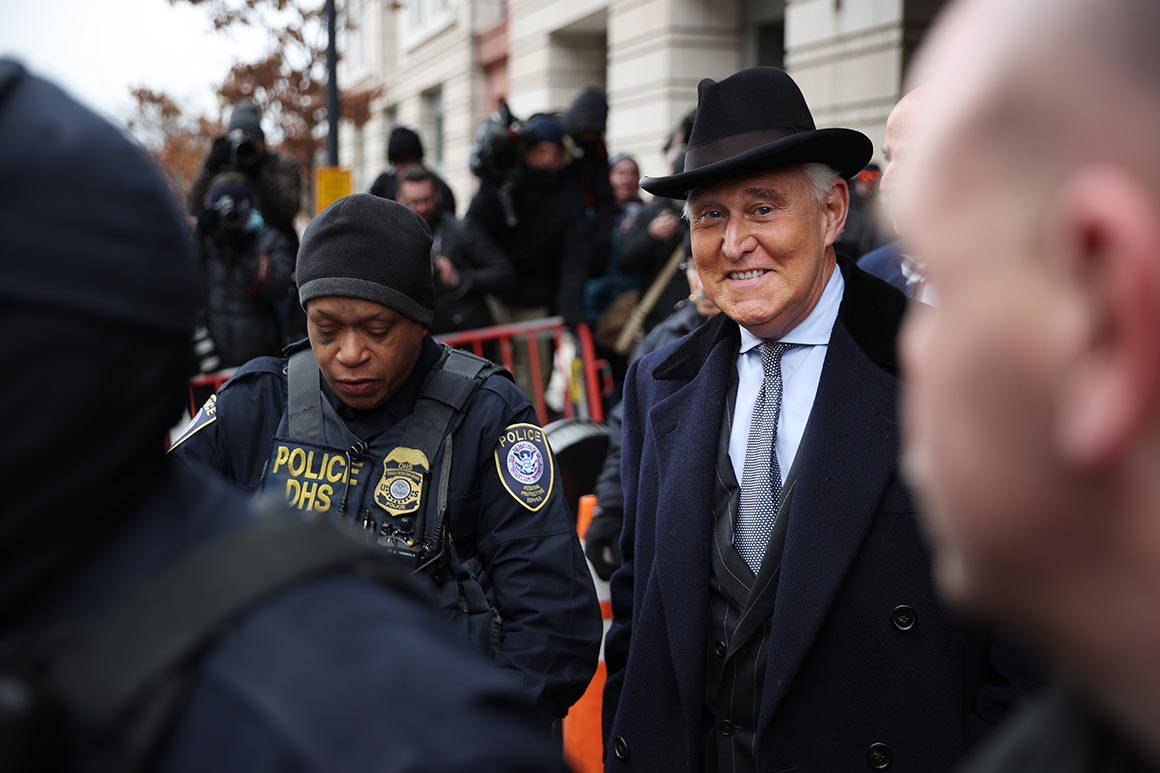
Stone also told WikLeaks in early 2017 that he was Assange’s only hope for a pardon from the president if extradited and prosecuted in the United States. The longtime Trump adviser also appeared to be trying broker a deal to resolve the long-running U.S. investigation into Assange and WikiLeaks.
“I am doing everything possible to address the issues at the highest level of government,” Stone wrote to Assange in June 2017. “Fed treatment of you and WikiLeaks is an outrage. Must be circumspect in this forum as experience demonstrates it is monitored.”
“Appreciated. Of course it is!” Assange wrote back.
The newly revealed messages often raise more questions than answers. They show Stone in touch with seemingly high-ranking Israeli officials attempting to arrange meetings with Trump during the heat of the 2016 campaign. They also provide clues about an attempt to procure some kind of “October surprise” involving damaging information held by the Turkish government.
At times, Stone and his contacts appeared to acknowledge that Trump seemed doomed in the 2016 election and needed outside intervention. Stone also described multiple direct contacts with Trump and efforts to arrange meetings for him.
In the summer of 2016, one Stone associate expressed fears Trump would lose, floated “critical intell” that could impact the campaign and mounted a frenzied effort to get a one-on-one meeting with the candidate.
“I have to meet Trump alone,” the associate wrote to Stone in July 2016. Stone arranged for such a meeting, but he said in a later email that a “fiasco” ensued after the associate unexpectedly brought a foreign military officer along.
The associate’s name was deleted from the warrant application released Tuesday, but the FBI laid out the repeated efforts to meet Trump as part of a series of events involving conservative author Jerome Corsi and UK-based financial consultant Ted Malloch, including a previously reported directive by Stone telling Corsi that Malloch “should see Assange” and prod him to release information damaging to Hillary Clinton’s campaign.
Ultimately, prosecutors did not charge Stone for his dealings with Assange or various intermediaries, but rather for misleading House investigators about them. Earlier this year, a federal judge sentenced Stone to almost three-and-a-half years in prison for lying to House investigators and impeding their probe of Russian interference in the 2016 election.
Trump has repeatedly accused prosecutors of unfairly singling out Stone, who remains free as he awaits a date to begin serving his sentence. Stone faces a deadline this week to appeal his prison term and seven felony convictions. The president has indicated he’s considering a pardon for Stone but has been cryptic about his plans and possible timing.
Stone became a central figure in the narrative about Trump campaign contacts with Russia in 2016. He repeatedly claimed he had contact with Assange in the summer of 2016, shortly before Assange began releasing tens of thousands of emails stolen from the account of Clinton campaign chairman John Podesta. Many of the newly released search warrants centered on efforts to determine the true nature of Stone’s contacts with Assange and whether he had advance knowledge of Assange’s intentions.
Prosecutors also acknowledged that their picture of Stone’s communications was incomplete: He relied on a slew of encrypted apps during some of the most sensitive months of the campaign, from Signal to Wickr to WhatsApp, and messages he exchanged on those services were not obtained.
Despite the reams of new information contained in the search warrants, Stone remained defiant Tuesday, insisting his entire prosecution was a farce.
“Although there are private communications contained in the warrants, they prove no crimes,” Stone said in a statement. “I have no trepidation about their release as they confirm there was no illegal activity and certainly no Russian collusion by me during the 2016 election. There is, to this day, no evidence that I had or knew about the source or content of the WikiLeaks disclosures prior to their public release.”
The documents contain a litany of other peculiarities and details about Stone’s methods of contact. For example, they note that he often used an account on CraigsList to communicate with people, and that he registered the account under the name “Swash Buckler.”
Source: politico.com
See more here: news365.stream






